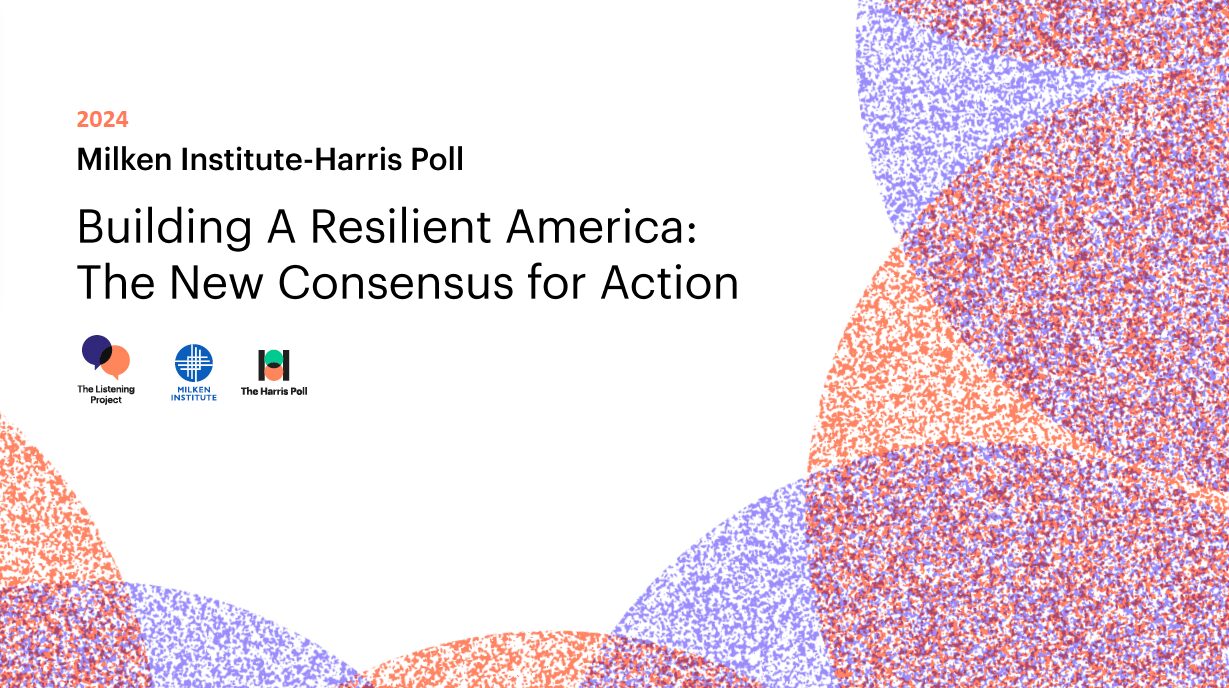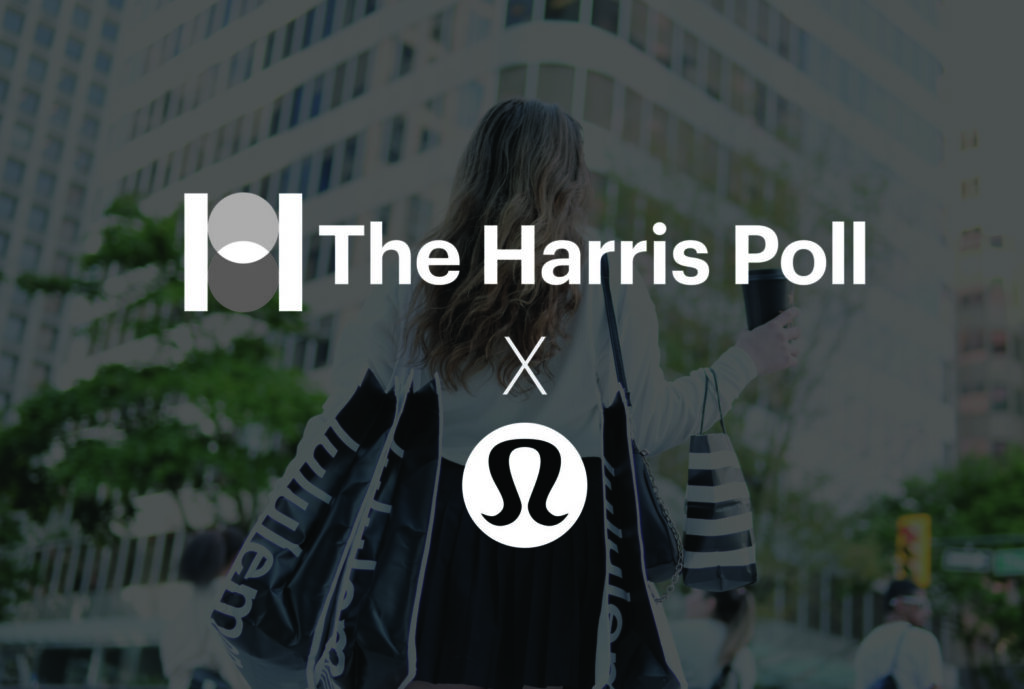In The News

The Listening Project
U.S. business leaders and Americans alike are confronting significant geo-economic challenges, according to the new Milken Institute-Harris Poll Listening Project report, “Building A Resilient America: The New Consensus for Action.” The findings illuminate the struggles leaders face as they navigate through economic instability, tech disruptions, and societal shifts.
These challenges come with the task of marrying immediate pressures with long-term strategic ambitions and concerns about America’s global position, prompting 91% of business leaders to advocate for a concerted effort to bolster U.S. competitiveness in the global market. Concurrently, the research indicates a consensus for optimism and collective effort that transcends political boundaries.
Find out the keys to unlocking U.S. competitiveness in the full report here:
- A Tale of Two Worlds: Business Leaders Optimism vs. Consumer Caution on the Economy
- America’s Uphill Battle: U.S. Competitiveness
- The Resilience Imperative: America’s Unified Quest for Endurance
- Consensus for Place-Based Innovation to Restore Trust and Advance Progress
And deep dives on three key areas to business leaders believe we need to prioritize to build a more competitive and resilient America:
- AI & Cybersecurity
- Trade & Supply Chain
- Climate Change

Download the 2024
Listening Project
Live at the 26th Milken Institute Global Conference:
Results from the study results will be discussed at several panels during the conference. To watch and learn more about the discussion and panelists, please click here. Follow the Global Conference on social media with #MIGlobal.
Background on the study:
Now in its fifth year, The Milken Institute-Harris Poll Listening Project surveys business leaders and the general public starting with a simple premise: What issues, if solved, would build more meaningful lives for people, communities, and societies.
The Listening Project Insights
Want to understand more about this research and overall thought leadership or futures research?
Connect with Libby Rodney, Harris Poll Chief Strategy Officer, and Abbey Lunney, Managing Director, of our Thought Leadership & Futures practice here.







